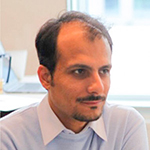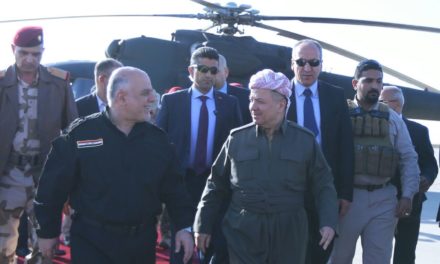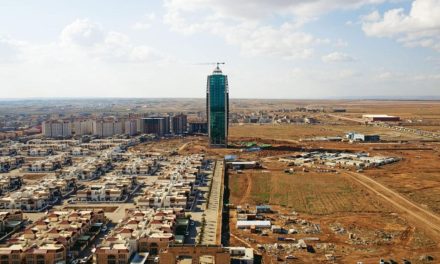(Photo: Ahmad Al-Rubaye/AFP)
The protest movement in Iraq witnessed an important development on the 24th of January. Hundreds of thousands responded to Muqtada Al-Sadr’s call to demonstrate to demand U.S troops withdraw from Iraq. His call was supported by Iraq’s ‘resistance forces’ which represent the political wings of the Popular Mobilization Forces (PMF) factions in Iraq.
The demonstrations on Friday marked the beginning of what the organizers called ‘The Second Twenty Revolt’. The ‘Twenty Revolt’ took place in 1920 when Iraqis rose up against British occupation which resulted in canceling the British mandate over Iraq. One hundred years later, this movement is supposed to achieve something similar by forcing U.S. troops to withdraw from Iraq. The leaders of the new movement vowed not to stop until this goal is achieved.
Immediately after the demonstrations against the U.S. presence were concluded, Sadr ordered his supporters to withdraw from the protest venues, including Tahrir square, and take down their tents. With one move, the protestors saw their numbers dwindle significantly, as Sadr’s supporters were a significant part of the ongoing demonstrations since October 2019. The protestors could not hide their disappointment and feelings of betrayal and vulnerability. On several occasions they were vocally critical of Sadr. As a result, clashes happened between the two groups, and in some cities the tents of the non-Sadrist protestors were burned down. The remaining protestors however vowed to continue their protests regardless of the Sadrists and tried to make up the numbers by rallying more supporters. Sadr, well-known for switching tactics very fast, issued a statement asking his protestors to return to the protest venues once again, calling the other protestors ‘brothers’ and expressing his discomfort with dividing the protest movement.
At the same time however, Muhammad Tawfiq Allawi’s name was circulating again as nominee for prime minister, although his chances a few weeks ago were slim and protestors had already refused his nomination. On Saturday, 1 February, President Barham Salih finally nominated Allawi to form the new government, after he had warned the political factions that if they don’t put forward a name, he will choose one. While the protestors reiterated their rejection of Allawi’s nomination, Sadr expressed his support and vowed to support him if he remained independent. Meanwhile Sadr’s supporters, armed with knives and bats, stormed the building of the unfinished ‘Turkish Restaurant’ at Tahrir Square, also known as ‘Mount Uhud’, which became the symbolic stronghold of the protest movement since the demonstrations started.
Some believe that the events of the last week in January marked the end of the protest movement, or at least its most recent wave, which has been raging since October 2019. However, this could also be the beginning of a new phase. After the nomination of Allawi, footage of one emerging protest leader, Alaa Al-Rikabi, started to circulate on social media. The movement that once prided itself on being leaderless, suddenly had a soft-spoken face upon whom many supporters agreed as their representative. In his video, Al-Rikabi made a few remarkable points that could point to the direction of what is next for the protest movement.
Al-Rikabi focused on the fact that Allawi’s nomination was ‘rejected by the people,’ because the process used to choose him was unacceptable by the people. Nevertheless, he still used the promises Allawi made in his video after his nomination as criteria for the people to judge his performance. The prime minister designate is certainly not endorsed by the protestors, but this shows that he is not entirely rejected by them either, even though Al-Rikabi predicted with certainty that he will fail at his task. In other words, protestors are willing to give him a chance if he delivers on his nomination speech.
Furthermore, Al-Rikabi pointed out that it is time for the protest movement to turn into a political movement and join the upcoming elections and called for stopping the practice of preventing students from going to schools. Groups of protesters, calling themselves ‘Anti-Attendance Teams’ were forcing schools across Iraq to shut down and instead urging students to take part in the demonstrations, often using the threat of violence against school administrators who refused to cooperate. Instead, Al-Rikabi called upon protestors to support the educational institutions, as per the call of Grand Ayatollah Sistani in his latest Friday Sermon.
The content of Al-Rikabi’s video points to a significant but not necessarily surprising development. The natural course of movements is often towards more organized entities that later go into politics and eventually join elections. Organizations require leaders who will have to be vocal about their vision, which gives the people the chance to choose whether they want to support them or not.
The protest leaders will find themselves part of the same political system they were so critical of and demonstrating against. The need to have a political say won’t be achieved by rejecting or refusing nominees at Tahrir Square. While in the past they were urging people to boycott the elections, they eventually will have to campaign in order to gain electoral support and take part in the elections.
Tactics of closing down schools, blocking roads, or burning down public buildings might be effective in causing maximum pressure but they are not in line with reform and eventually will be abandoned, because they are rejected by the majority of the public and by the powerful religious authority. Also, Al-Rikabi’s call to stop these practices is in line with the intention to run for office, as no political movement would get away with supporting the actions of ‘Anti-Attendance Teams.’
All the talk about leaderless movements and no political ambitions is not plausible, or at least not sustainable. What the leaders of the protests really accomplished was the removal of the former prime minister and the new election law, through the sacrifices made by the demonstrators. If they are serious about reform, they are now required to work on achieving the demands of the people instead of asking the ‘corrupt elite’ to achieve things for them, all that within the democratic framework and not outside of it. This way their real weight in the political process will be visible to the people who will be watching and deciding whether they want to support them or not.

Muhammad Al-Waeli
Muhammad Al-Waeli is a Ph.D. candidate in management focusing on leadership, reform, and institutions in Iraq.










